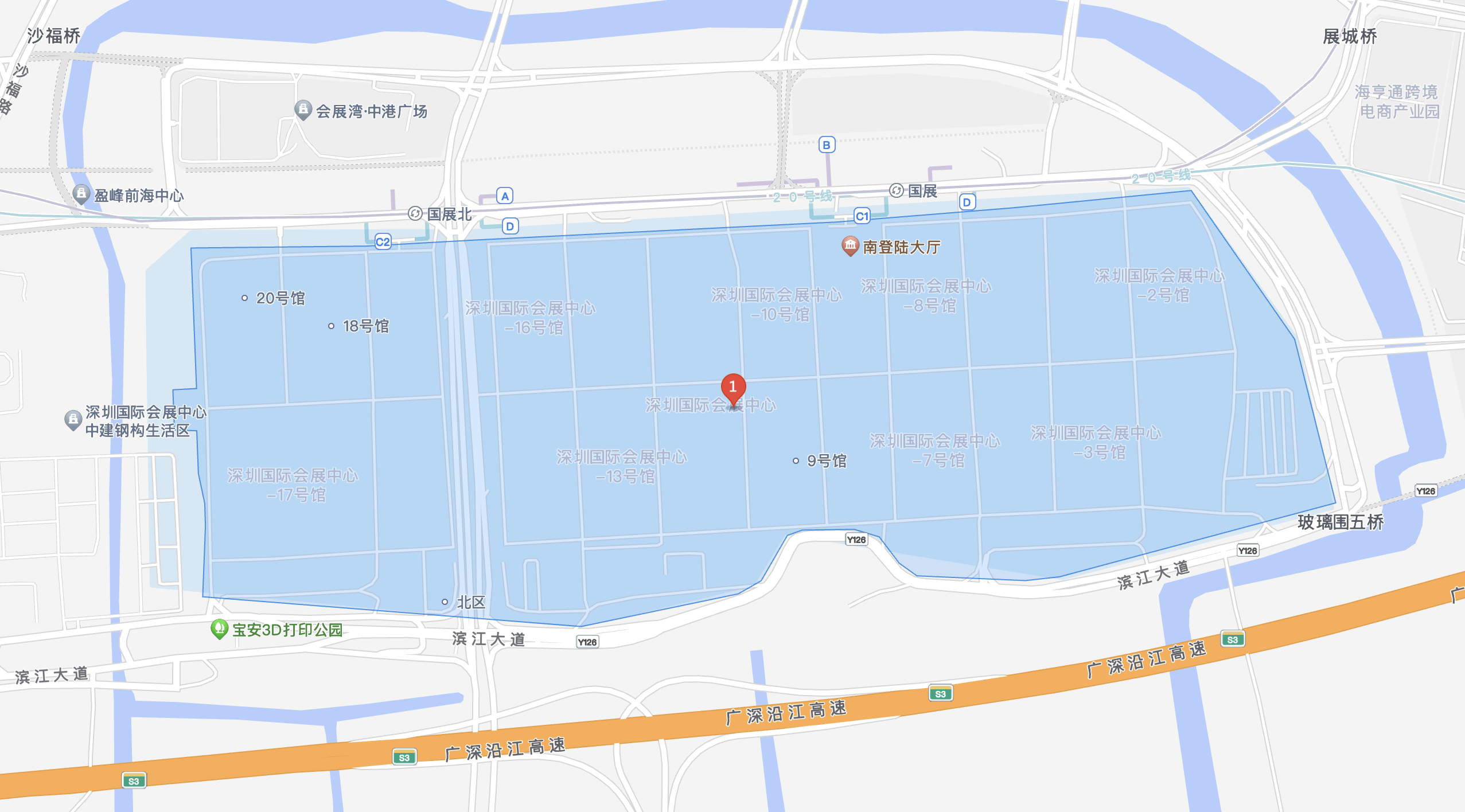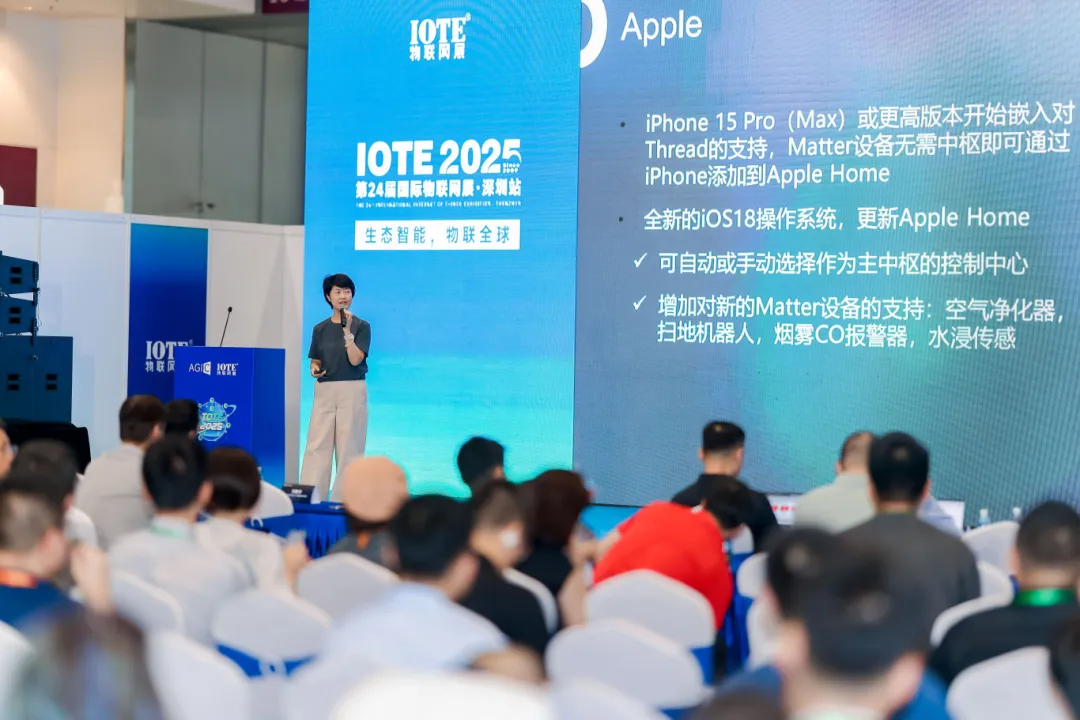
Dr. Weimin Su, Chair of the Connectivity Standards Alliance (CSA) China Member Group, revealed in her speech that the global smart home market is growing at an annual rate of 60% toward $1.6 trillion, but users generally face challenges such as complex installation, device interoperability, frequent failures, and privacy concerns. The Matter standard emerged as a response to this challenge. By unifying technical specifications, it effectively reduces development costs, breaks down platform barriers, enables cross-ecosystem device connectivity, and significantly improves product usability and interoperability.
Dr. Su reviewed the Matter standard's evolution from supporting basic devices like lighting and door locks to expanding to complex scenarios like home routers and heat pump systems. She also highlighted its rapid adoption in both the global and Chinese markets, including integration with mainstream platforms and the launch of a large number of certified products. She particularly emphasized the advantages of Matter over Wi-Fi in bandwidth, coverage, and compatibility, which will help accelerate adoption. Looking ahead, Matter will continue to optimize configuration processes, enhance security mechanisms, and improve network infrastructure support. Through technological innovation and cross-brand collaboration, it aims to build a more intelligent, convenient, and secure whole-home smart ecosystem.
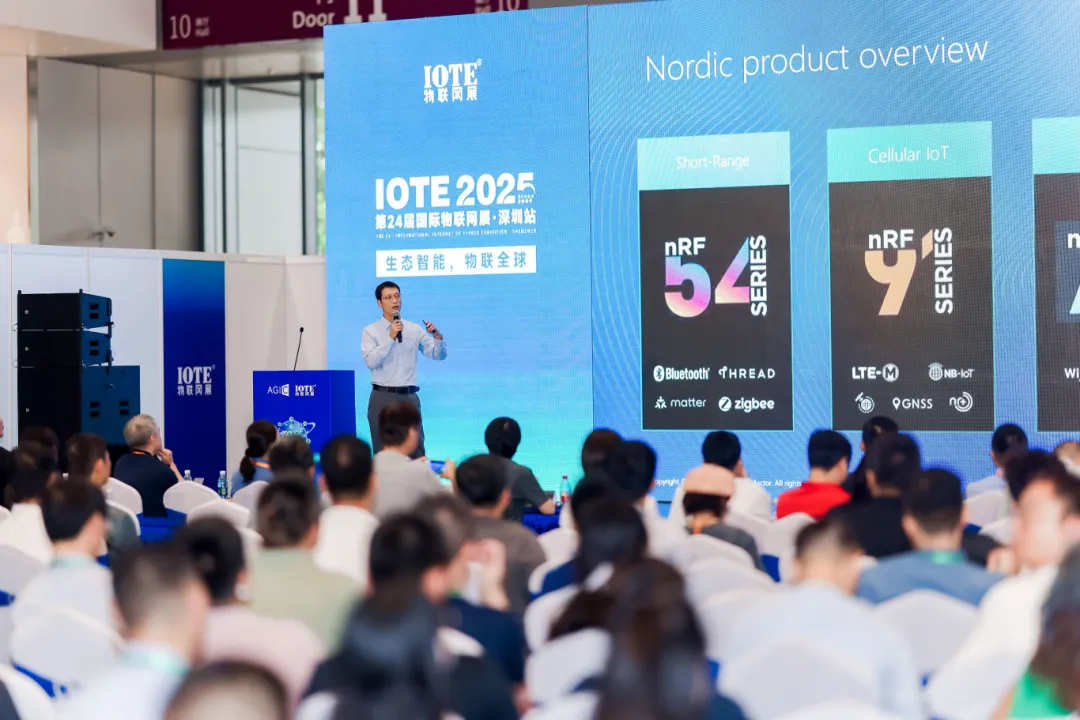
Ai Minhua, Director of Standards and Ecosystems for Nordic Semiconductor China, detailed how Nordic's Matter over Wi-Fi technology is reshaping the future of the smart home with its ultra-low power consumption. He pointed out that while Wi-Fi offers the advantages of high bandwidth and wide coverage, traditional solutions consume high power, making them difficult to meet the demands of battery-powered devices. Nordic's nRF71 Series SoCs, combined with proprietary low-power technologies such as Target Wake Time (TWT) and optimized power management modes, significantly reduce sleep and receive currents, significantly improving the battery life of Wi-Fi devices.
Ai Minhua emphasized that Nordic's solution supports multi-band Wi-Fi and multi-protocol coexistence, offers excellent connection stability and security, and provides comprehensive development support through the nRF Connect SDK, helping developers quickly implement Matter products. He also shared use cases such as smart door locks and thermostats, demonstrating the advantages of the Matter standard in simplifying network configuration and enabling cross-platform connectivity. Nordic is using technological innovation to break the power consumption bottleneck of Wi-Fi IoT and accelerate the development of a low-power, highly compatible, and easy-to-use smart home ecosystem.
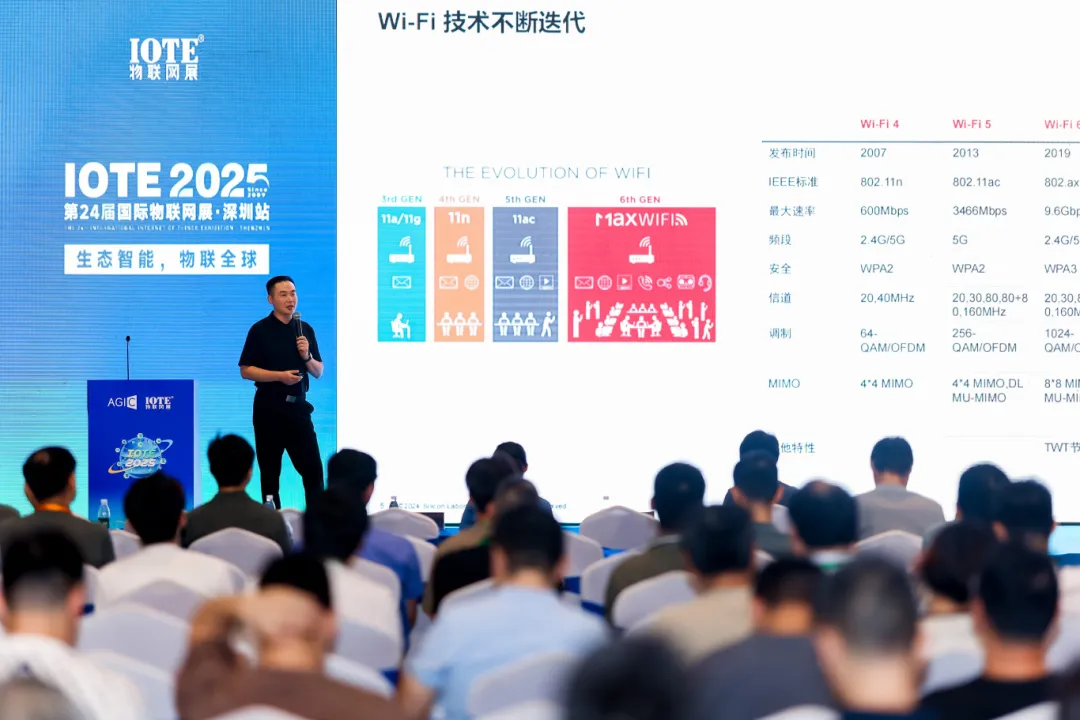
In his speech, Liu Jun, Senior Ecosystem Manager for Asia Pacific at Silicon Labs, elaborated on how Matter over Wi-Fi brings a more efficient and reliable connectivity experience to the smart home. He noted that as Wi-Fi technology evolves from Wi-Fi 4 to Wi-Fi 7, its high bandwidth, wide coverage, and mature network infrastructure provide an ideal connectivity foundation for IoT devices. The introduction of the Matter standard effectively addresses the fragmentation of the smart home ecosystem, enabling seamless interoperability across platforms and brands.
He highlighted Silicon Labs' SiWx917 series of Wi-Fi/BLE combo chips, featuring an ultra-low power design that supports local AI/ML inference and sensor data pre-processing, significantly reducing power consumption and improving response speed. He also demonstrated an IoT gateway architecture based on both Wi-Fi and Thread protocols, helping to build a more stable and high-capacity home network. He stated that Silicon Labs is promoting the widespread adoption of Matter over Wi-Fi in lighting, sensors, smart home appliances, and other scenarios through integrated hardware and software solutions, accelerating the realization of the vision of a truly connected, smart life.
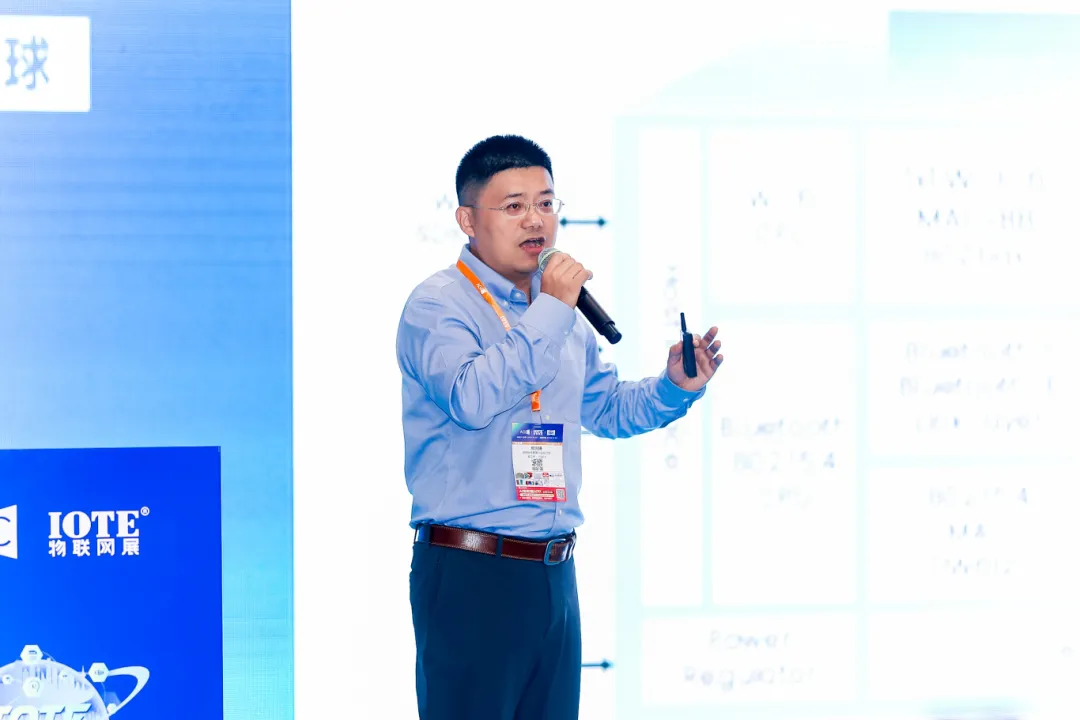
In his speech, Liu Jun, Senior Ecosystem Manager for Asia Pacific at Silicon Labs, elaborated on how Matter over Wi-Fi brings a more efficient and reliable connectivity experience to the smart home. He noted that as Wi-Fi technology evolves from Wi-Fi 4 to Wi-Fi 7, its high bandwidth, wide coverage, and mature network infrastructure provide an ideal connectivity foundation for IoT devices. The introduction of the Matter standard effectively addresses the fragmentation of the smart home ecosystem, enabling seamless interoperability across platforms and brands.
He highlighted Silicon Labs' SiWx917 series of Wi-Fi/BLE combo chips, featuring an ultra-low power design that supports local AI/ML inference and sensor data pre-processing, significantly reducing power consumption and improving response speed. He also demonstrated an IoT gateway architecture based on both Wi-Fi and Thread protocols, helping to build a more stable and high-capacity home network. He stated that Silicon Labs is promoting the widespread adoption of Matter over Wi-Fi in lighting, sensors, smart home appliances, and other scenarios through integrated hardware and software solutions, accelerating the realization of the vision of a truly connected, smart life.
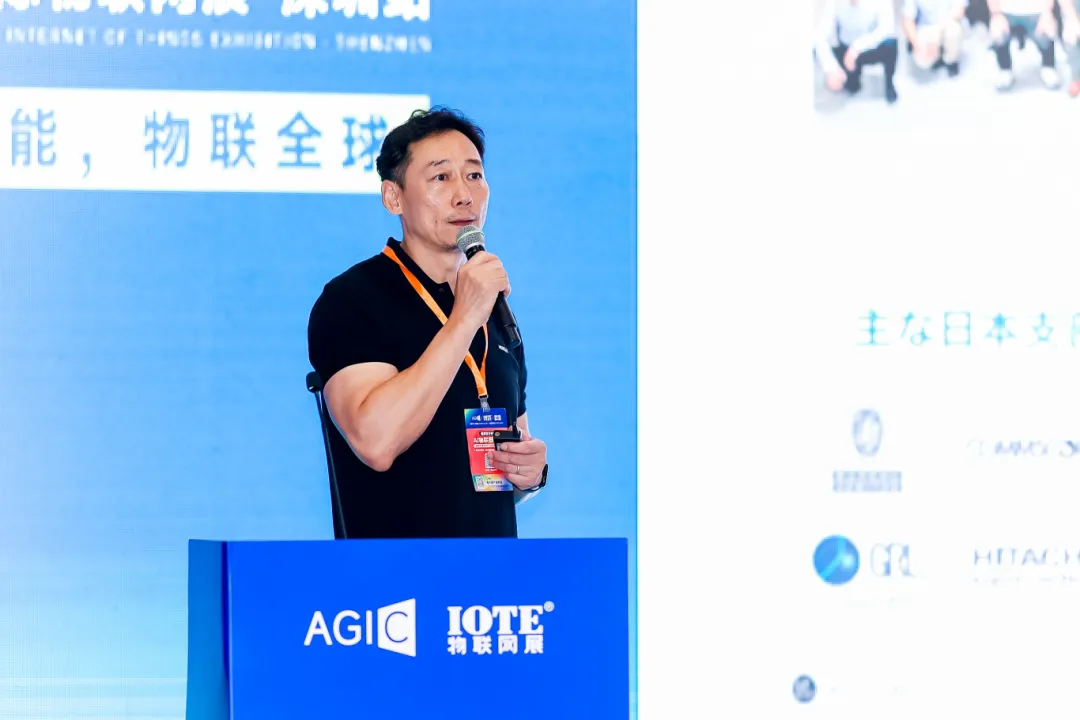
Hideaki Nakayama, representative of the Connectivity Standards Alliance (CSA) Japan Member Group and general manager of Allion Japan, delivered a speech titled "Matter and Wi-Fi: The Current State and Future of the Japanese Market." He noted that Japan's smart home penetration rate still lags behind that of Europe, the United States, and China, that manufacturers' participation in the CSA is insufficient, and that consumer awareness and usage of smart home appliances need improvement. With the advancement of the Matter standard, device compatibility will be significantly improved, freeing users from vendor and ecosystem barriers and allowing them to freely choose products based on their preferences. This will greatly promote the adoption of smart homes in Japan.
According to IDC, Japan's IoT market is expected to reach 9.1 trillion yen by 2026, with an average annual growth rate of approximately 9.1%, with smart home consumption being a key driver. As a third-party certification and quality assurance organization, Allion will continue to provide efficient support to the industry chain through one-stop services, accelerating the implementation and prosperity of the smart home and IoT ecosystems.











